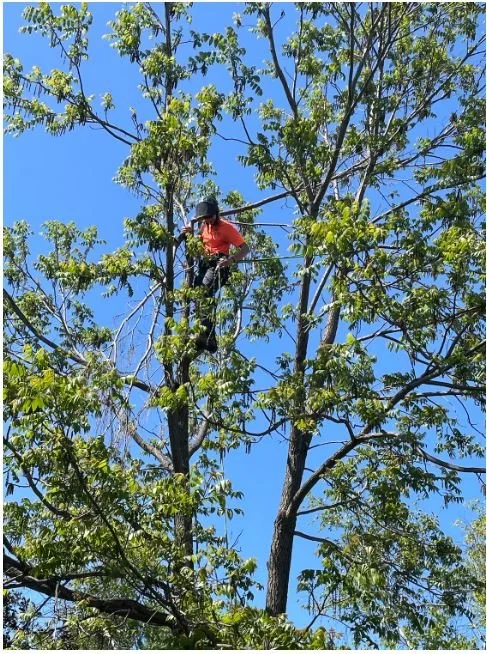She saved my life.
2023-06-01
Dear reader,
“Your buttons aren’t buttoned,” my colleague said. She pointed to where the small buttons were supposed to be on the corners of my shirt collar.
“Thanks,” I said, hastening with my stubby fingers to fix them. “I left home this morning before my girlfriend was awake,” I said, to explain how I’d gotten to the State House floor just before gavel at 10 a.m. with my wardrobe not fully functioning.
“That’s why you have a mirror,” she replied.
Like her, I was bemused with myself for the absentmindedness. But mostly glad that she was willing to overcome the small (and sometimes large) social friction of saying something to someone when something’s off.
Not because anything in the world depends on my collar buttons being buttoned. But everything in the world depends on people looking out for each other. Practicing on small things is good.
What a mirror won’t do is point out that spot you missed. A mirror won’t step forward and ask you if you’re okay, and if you need anything. “How are you?” is a stale question that gets stale answers. My answer on the buttons gets at the same information with less of a script.
I like encountering people who practice checking in. They are lifesavers.
Isabel saved my life two summers ago. She was WWOOFing here—volunteering for room and board on a farm. She had picked up some kind of rotator cuff injury a few weeks before at her last job, and it was getting worse. One day I made the not-very-risky comment that she “really oughta get it looked at.” I’ve been there with shoulder issues, I said. Take care of yourself when you’re young.
The next day, she did something far riskier—she questioned an oldster on his safety protocols.
We were working together on getting the chainsaw running. Isabel was decked out in helmet, gloves, and chaps. I was only wearing jeans and rain boots. I didn’t even throw on ear muffs.
I told myself that was okay because I was just there for a minute to help start the saw. I revved it up and passed it to her.
Later, she told me about the mortician.
Isabel had been doing some chainsaw work for a family friend back in Wisconsin but ran out of gas. A neighbor offered gas and asked, could you take five minutes and cut this brush for me in exchange?
This guy was a mortician and told Isabel about a recent “customer.” He was a chainsaw operator with a lot of experience. One day he took out the saw to do a five-minute job. As it was just a “quick job,” the chaps stayed on their hook. But it doesn’t make any difference to the chain that you decided this was a quick job. It can fly off at any time. On this day, it flew off and cut the femoral artery on his leg. Guy bled out in a minute. Nothing anyone could do.
Isabel told me this story and then said she noticed I wasn’t wearing chaps. Why not?
Isabel in her current job in Wisconsin.
What could I say? Whine that it was a hot day? No, there’s no excuse for self-neglect. But that doesn’t mean it’s easy to call someone out for it.
But she probably saved my life. If not that day, another time. I’m glad she took the risk.
Writing has saved my life. It helps me to think in a way different from anything else. I’ve written thorns into tomes, and found them no longer in my side.
Maybe it can save yours. The problem is, I’ve noticed that most people don’t like writing. They won’t do it unless forced by a deadline and they’ll hate it the whole time.
If I wrote the way I was taught to write, I’d hate it too. In fourth grade, we were taught how to “outline” a paper. Intro paragraph that sums up your main point (one sentence) with one additional sentence each devoted to your three main points. Follow with three paragraphs, transitioning from one to the next as you cover each of your main ideas. Now, in the fifth paragraph, write your conclusion as a summary of what you already told the reader in the intro.
My son says that he was taught to write in grade school in much the same way, and neither of us likes it.
Maybe you have more patience than I do, but when someone starts repeating the same point to me over and over, I start tuning them out.
It’s funny (not really) that AI is already writing papers for students and briefs for lawyers. It’s not just that the AI is getting better. We’ve made our writing so formulaic, that a robot can do it.
If you or someone you know has a spark for writing but has had that snuffed out, try again. And don’t listen to the voices telling you how to structure it or who to write for. If your writing needs a structure you’ll find it when you need it. For now, simply sit at a blank page and write.
If you need a prompt, try writing about something hard about your week, starting off by saying, “What’s funny about _____ is that _______.” Go from there, deciding whether to make up absurd things or notice the real-life comedy in every tough moment.
Many of us were taught that an essay needs a smooth ending. “Don’t be too abrupt,” I’ve been told by editors. I disagree. Write till you’re finished then sign off.
Warmly,
Tristan Roberts
Quill Nook Farm


